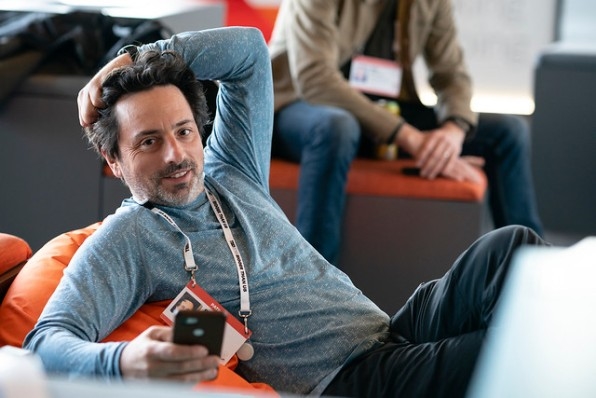Carole Cadwalladr, the journalist who exposed how Cambridge Analytica harvested data from 87 million Facebook users and subsequently influenced both the Brexit vote and the election of Donald Trump, made her assessment of social platforms perfectly clear in an unprecedented TED talk in Vancouver on April 15. On stage, she directly addressed Mark Zuckerberg, Sheryl Sandberg, Larry Page, Sergey Brin, and Jack Dorsey—an especially bold move, as Dorsey was scheduled to speak on the same stage the following day—as the “gods of Silicon Valley” and located them at the epicenter of the crisis in Western democracy.
“This technology that you’ve invented has been amazing, and now it’s a crime scene,” Cadwalladr says, “and you have the evidence.”
Cadwalladr came to realize the role of Facebook in influencing the outcome of the Brexit vote when she was assigned to dive into what about Ebbw Vale, a town in South Wales, made it one of the places with the highest rate of “leave” votes in the U.K. When she traveled there, she saw, in the place of the old coal factories that once supported the local economy, a shiny new leisure center and an entrepreneurship center, built with funds from the European Union, which also financed a new road through the town.
She met plenty of people who cited immigration as the reason they voted to leave, but met very few immigrants, save one Polish woman who suspected she was the only foreign-born person in the town. Where were they getting these messages? From Facebook, Cadwalladr realized.
“This entire referendum happened on Facebook,” she says. The Leave campaign was able to manipulate data harvested from Cambridge Analytica to identify users who appeared “politically persuasive” and feed them targeted ads that stoked right-wing ideas, framing immigration as a threat and the EU as a constricting force–even as the government funneled investments into people’s backyards.
“There’s never been a talk like that at TED before”
For those who have been following the repercussions of Cambridge Analytica’s data breach–detailed in Cadwalladr’s extensive reporting–this is familiar. Yet Cadwalladr brings it back into sharp focus. She talks about how, the day before The Guardian was set to publish the piece she worked on with ex-Cambridge Analytica employee Christoper Wylie exposing the use of data from Facebook, the social media platform threatened to sue her and the publisher. They published anyway.
“Facebook, you were on the wrong side of history in that,” Cadwalladr says. Her journalism ultimately forced a public apology from the company.
But what it hasn’t done, in a way that’s satisfying to Cadwalladr, is address the fundamental flaws in its platform that made such a data breach and targeted election manipulation possible.
“It’s not enough to say you’ll do better in the future,” she says. “To have any hope of stopping this from happening again, we have to know the truth…what the Brexit vote demonstrates is that liberal democracy is broken, and you broke it.”

[Photo: Bret Hartman/TED]
In her talk, Cadwalladr issued a specific invitation to tech leaders like Zuckerberg and Sandberg: Come to a public forum like TED, address people directly, and tell them your plan for moving forward.
“It is not about left or right, or Leave or Remain, or Trump or not,” she says. “It’s about whether it’s actually possible to have a free and fair election ever again. As it stands, I don’t think it is. And so my question to you is: Is this what you want? Is this how you want history to remember you? As the handmaidens to authoritarianism that is on the rise all across the world? You set out to connect people and you are refusing to acknowledge that the same technology is now driving us apart.”
Chris Anderson, the TED curator, said that “there’s never been a talk like that at TED before,” and echoed Cadwalladr’s invitation for those behind the platforms to speak publicly and honestly about the crisis they’ve inflicted on democracy.
(124)